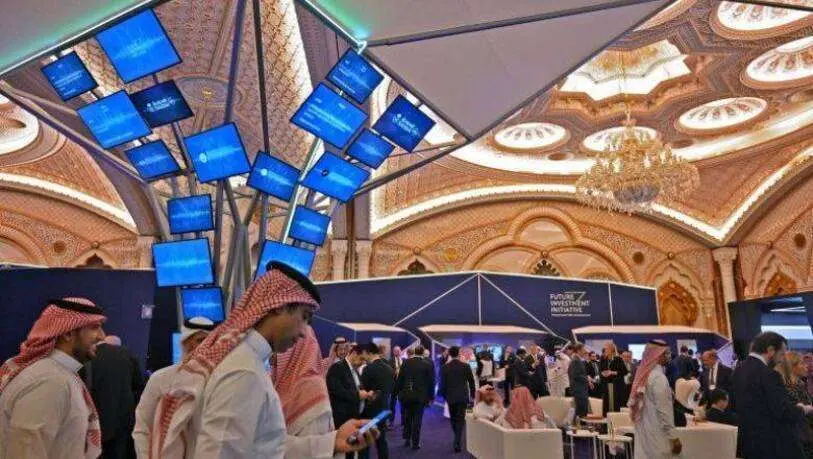Saudi Arabia kicks off the fourth edition of 'Davos in the Desert'

Saudi Arabia is hosting the fourth edition of its two-day international investment forum. The so-called 'Davos in the desert' will be held mostly virtually due to the pandemic and will feature dozens of world leaders and business tycoons.
The Future Investment Initiative (FII) was launched in 2017 by Crown Prince Mohammed Bin Salman and aims to attract foreign investors. It also promotes a plan to diversify the Saudi kingdom's economy, which is heavily dependent on oil exports.
The summit, previously scheduled for last October, comes amid the pandemic that has hit the global economy.
Organisers have announced that this fourth edition of the FII will feature nearly 150 speakers seeking to showcase the country as a vibrant and dynamic investment destination.
They further stated that "Jamaica's Usain Bolt, eight-time Olympic gold medallist (sprint), will join 100 guests participating virtually from New York, Paris, Beijing and Mumbai and another 50 who will attend in person in Riyadh".
Participants at the Saudi forum include David Solomon, managing director of Goldman Sachs, Stephen Schwarzman, managing director of investment fund Blackstone, Larry Fink, managing director of US asset management firm Blackrock, and Laurent Fabius, as former COP2 chair, which led to the Paris climate agreement.
Although the text evokes "working in a post-COVID world", it does not return directly to the vaccine issue that dominated the Swiss forum in Davos, to the impatience of Europeans and in the face of delays by manufacturers and calls for equitable access to vaccines.
Yassir al-Rumayyan, chairman of Saudi Arabia's Public Investment Fund (PIF), said in a statement that "there has never been a more important time for leaders, investors and policymakers to come together to work to revitalise the global economy".
Previous editions were marred by a vicious crackdown on opposition to the rise of Prince Mohammed. A year after the first edition, the fallout from the murder of journalist Jamal Khashoggi by Saudi agents in Istanbul caused a wave of business and political leaders to pull out of the glitzy conference at the last minute. The conference saw a restart in 2019 as global outrage over the murder subsided.
The forum is billed as an economic coming-out party for the petro-state, which is seeking to diversify away from its main source of revenue from crude oil. Officials are also eager to project the kingdom's economic ambitions.








